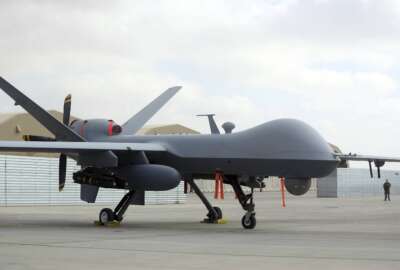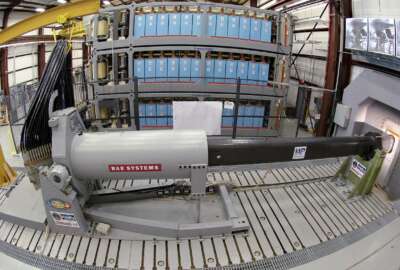Senate appropriators want DoD to reassess RDER program
Senate Appropriators said the RDER program “has to date not resulted in accelerated fielding outcomes,” calling for reallocation of funds in fiscal 2025.
The Rapid Defense Experimentation Reserve, a program that promises to quickly bring emerging technologies into the hands of warfighters, might be on the chopping block in fiscal 2025 as Senate appropriators are raising concerns about the program’s effectiveness.
Launched in 2021, RDER, Undersecretary of Defense for Research and Engineering Heidi Shyu’s key initiative, is designed to assess critical capabilities through field experimentation and rapidly integrate them into the military services. DoD stakeholders analyze data collected during these experiments to inform future budgetary and development decisions.
But in their version of the 2025 defense spending bill, Senate appropriators argue that the program “has to date not resulted in accelerated fielding outcomes” — less than one-third of RDER programs that received funding in 2023 have been integrated into the military services. And low transition numbers mean that most RDER projects will not receive dedicated funding from the services in fiscal 2025.
“While the Committee is supportive of data-driven joint experimentation, it is unaware of significant operational improvements derived from the RDER funding construct to date,” the Committee said in the report.
One publicly known RDER project includes ultra-long endurance drones called Vanilla. Those drones stay afloat for over a week and can be used for intelligence gathering and communications purposes. During the Valiant Shield 2024 exercise conducted in June, Vanilla operated as a communication relay during a 27-hour flight, surviving a several-hour strong storm.
The Pentagon requested about $450 million for RDER in fiscal 2025, down from the $687 million it requested in fiscal 2024. In fiscal 2023, however, the department requested $359 million for the initiative.
Now, the Senate Appropriations Committee recommends “slowing the rate of growth requested for RDER” and possibly moving some of the program’s funding to what they call a “Rapid Defense Innovation Reserve” or to the Replicator initiative.
The Pentagon managed to secure about $500 million in 2024 to move forward with tranche one of the Replicator initiative, which is designed to field thousands of disposable unmanned systems by August 2025. The department requested another $500 million for the initiative for fiscal 2025. It’s also possible the department will seek additional funding from Congress since it is already working on a second tranche of systems for the Replicator.
“In anticipation of these emerging requirements, and in light of the Committee’s substantive concerns about the lack of results of RDER, the Committee recommends reallocating RDER resources into a Rapid Defense Innovation Reserve,” said Senate appropriators.
“The intent of this reallocation is to enable the Department of Defense to reassess the RDER concept and provide the Committee additional information on the most effective use of requested funds for fiscal year 2025, which may include continuing RDER efforts or accelerating Replicator Tranche Two systems, until such time as funds for these systems can be aligned in the appropriate appropriations accounts in future budget submissions.”
Lawmakers also want the Defense Secretary to brief the congressional defense committees in October on whether the proposed funding should continue supporting RDER or be redirected to alternative innovation concepts, including the Replicator.
The Senate Appropriations Committee unanimously approved the 2025 defense spending bill on Thursday, sending it to the Senate floor for consideration. The bill still needs to be reconciled with the House’s version of the legislation.
Copyright © 2024 Federal News Network. All rights reserved. This website is not intended for users located within the European Economic Area.







